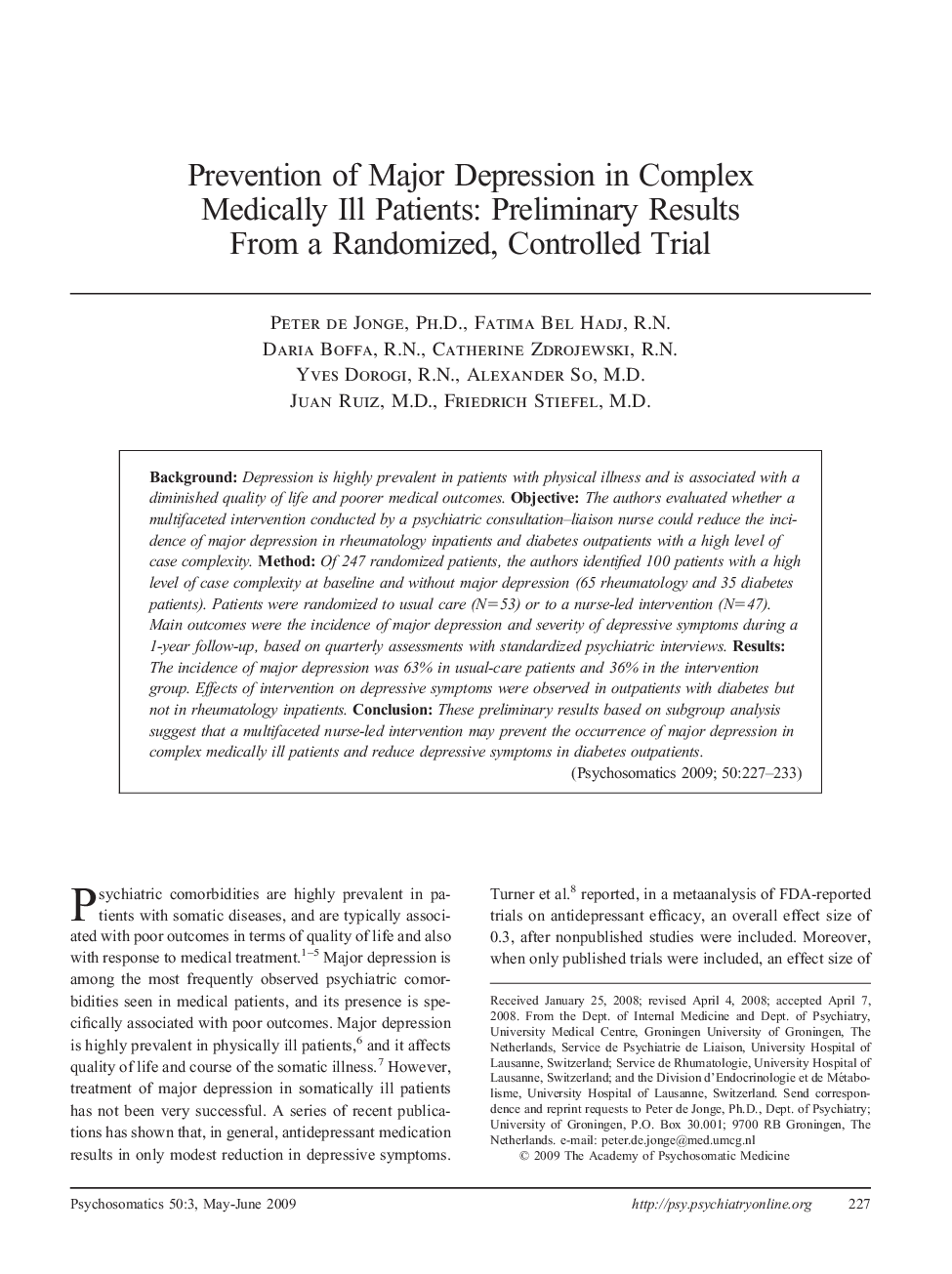| Article ID | Journal | Published Year | Pages | File Type |
|---|---|---|---|---|
| 339451 | Psychosomatics | 2009 | 7 Pages |
BackgroundDepression is highly prevalent in patients with physical illness and is associated with a diminished quality of life and poorer medical outcomes.ObjectiveThe authors evaluated whether a multifaceted intervention conducted by a psychiatric consultation–liaison nurse could reduce the incidence of major depression in rheumatology inpatients and diabetes outpatients with a high level of case complexity.MethodOf 247 randomized patients, the authors identified 100 patients with a high level of case complexity at baseline and without major depression (65 rheumatology and 35 diabetes patients). Patients were randomized to usual care (N = 53) or to a nurse-led intervention (N = 47). Main outcomes were the incidence of major depression and severity of depressive symptoms during a 1-year follow-up, based on quarterly assessments with standardized psychiatric interviews.ResultsThe incidence of major depression was 63% in usual-care patients and 36% in the intervention group. Effects of intervention on depressive symptoms were observed in outpatients with diabetes but not in rheumatology inpatients.ConclusionThese preliminary results based on subgroup analysis suggest that a multifaceted nurse-led intervention may prevent the occurrence of major depression in complex medically ill patients and reduce depressive symptoms in diabetes outpatients.
